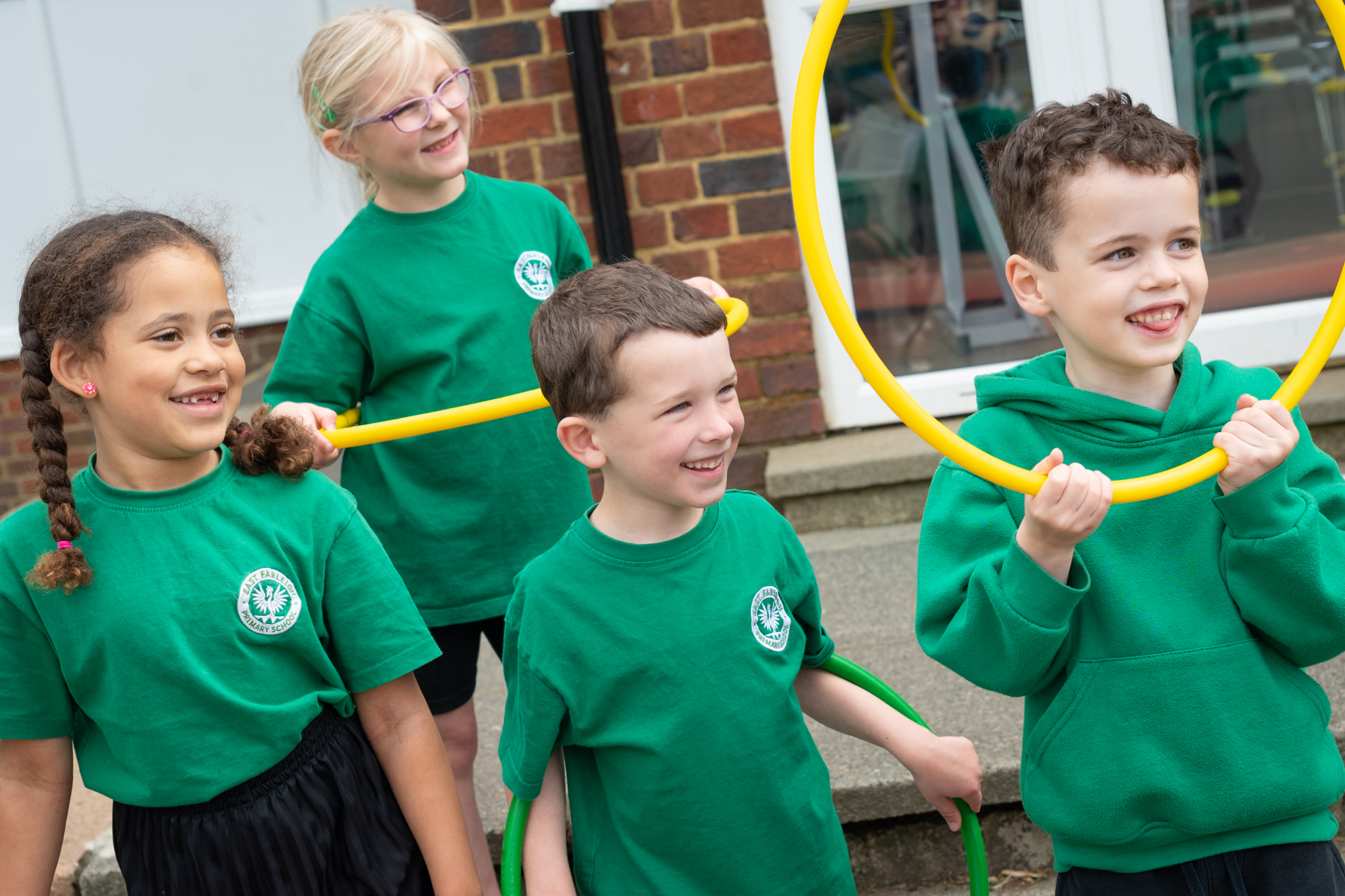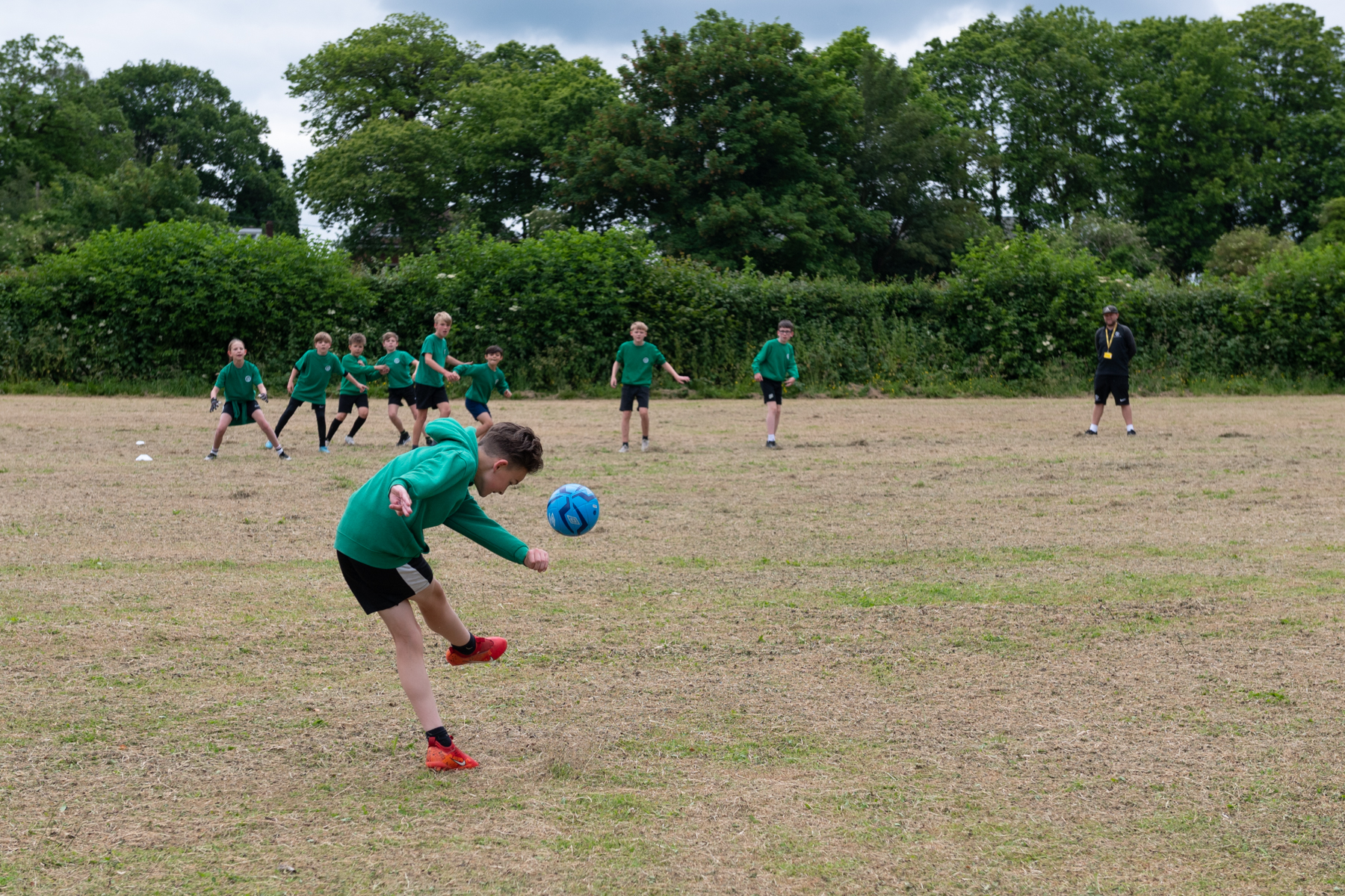Physical Education & Sport
PE Vision
At East Farleigh, we believe that engagement in physical education and activity not only improves health, reduces stress and improves concentration, but also promotes correct physical growth and development. Our school aims to inspire and excite all children to develop a love of physical activity and sport and help them to achieve ‘sana mens in corpore sano: a healthy mind in a healthy body’. We recognise that exercise has a positive influence on academic achievement, emotional stability and social skills.

Through sport and other physical activities our children will learn about their responsibilities both as individuals and members of groups and teams; they will learn to cooperate and to compete fairly, understanding their own and other’s roles. Through the mastery of a creative curriculum based around childrens’ interests we endeavour to nurture confident, resilient children who will always strive to achieve their personal best. We aim to ensure that all children are empowered with the skills, mindset and positive, lifelong habits, through understanding the benefits of physical activity on both their bodies and minds. These capabilities will allow them to be successful in their sporting challenges and active lifestyles at secondary school and beyond.
Curriculum Design
The teaching of Physical Education is conducted by both our teachers who use the GetSet4PE scheme and our outside PE provider, Team Theme. We work in close partnership with them to ensure that our curriculum intent is in line with theirs and that together we teach a progressive and engaging curriculum. Pupils at East Farleigh participate in two high quality PE lessons each week, covering two sporting disciplines every half term. Our PE curriculum is sequenced precisely to ensure progression of knowledge and skills throughout a child’s primary education, thus enabling children to build upon prior experiences and apply these fluently with confidence. In all of our PE lessons we ensure that there is both adequate challenge and support to ensure that all learners can achieve their full potential. Although we enjoy the competitive nature of sport, we also appreciate and encourage the importance of children ‘having a go’ and promote positive experiences of being physically active and not always participating to win. We have an inclusive approach and value the importance of physical and mental well-being.

A wide range of sporting clubs are regularly offered throughout the year, both at lunchtimes and after school. East Farleigh enters a vast range of sporting events throughout the year. These endeavour to be inclusive where children who are invited, attend to not only encourage their physical development but also their mental well-being. As a school we run inter-house events to ensure that all children have the opportunity to engage in competitive sport. We encourage our children to develop their leadership and communication skills by giving a group of Year Six children the opportunity to become positive role models as sports leaders. This is a role of responsibility where they support the younger children in playing collaborative games, respecting rules and being as active as possible during playtimes.
PE Progression at EFPS
Our progression document is coming soon.
The Characteristics of an East Farleigh Physically Educated Child
The ability to acquire new knowledge and skills exceptionally well and develop an in-depth understanding of PE.
• The willingness to practise skills in a wide range of different activities and situations, alone, in small groups and in teams and to apply these skills in chosen
activities to achieve exceptionally high levels of performance.
• High levels of physical fitness.
• A healthy lifestyle, achieved by eating sensibly, avoiding smoking, drugs and alcohol and exercising regularly.
• The ability to remain physically active for sustained periods of time and an understanding of the importance of this in promoting long-term health and well-being.
• The ability to take the initiative and become excellent young leaders, organising and officiating, and evaluating what needs to be done to improve, and motivating
and instilling excellent sporting attitudes in others.
• Exceptional levels of originality, imagination and creativity in their techniques, tactics and choreography, knowledge of how to improve their own and others’
performance and the ability to work independently for extended periods of time without the need of guidance or support.
• A keen interest in PE. A willingness to participate eagerly in every lesson, highly positive attitudes and the ability to make informed choices about engaging fully in
extra-curricular sport.
• The ability to swim at least 25 metres before the end of Year 6 and knowledge of how to remain safe in and around water.
We actively encourage our pupils to compete in a range of competitions, sports festivals and local cluster fixtures that are organised at regular intervals, during the appropriate season, throughout the school year. In addition to the large variety of physical activity within the curriculum, we also offer a range of after school and lunchtime clubs such as Netball, Basketball, Tag Rugby, Football, Speed Stacking, Hockey and Athletics.
PE & Sports News
-
Wednesday 29 January 2025 Our Netball Team! Thanks to Mrs Collins and Miss Evans for their support and effort with the team.
-
Wednesday 29 January 2025 Amazing victories at Cross Country! The East Farleigh children took on the stormy weather to bring home some medals, Tamsin 1st - Girls LKS2 race, Jemima 2nd - Girls UKS2 race and Eli 3rd - Boys KS1 race.
-
Friday 11 October 2024 Our Amazing Playleaders
-
Tuesday 8 October 2024 Cross Country - Friday 4th October 2024
-
Monday 7 October 2024 Cross Country - Friday 4th October 2024











